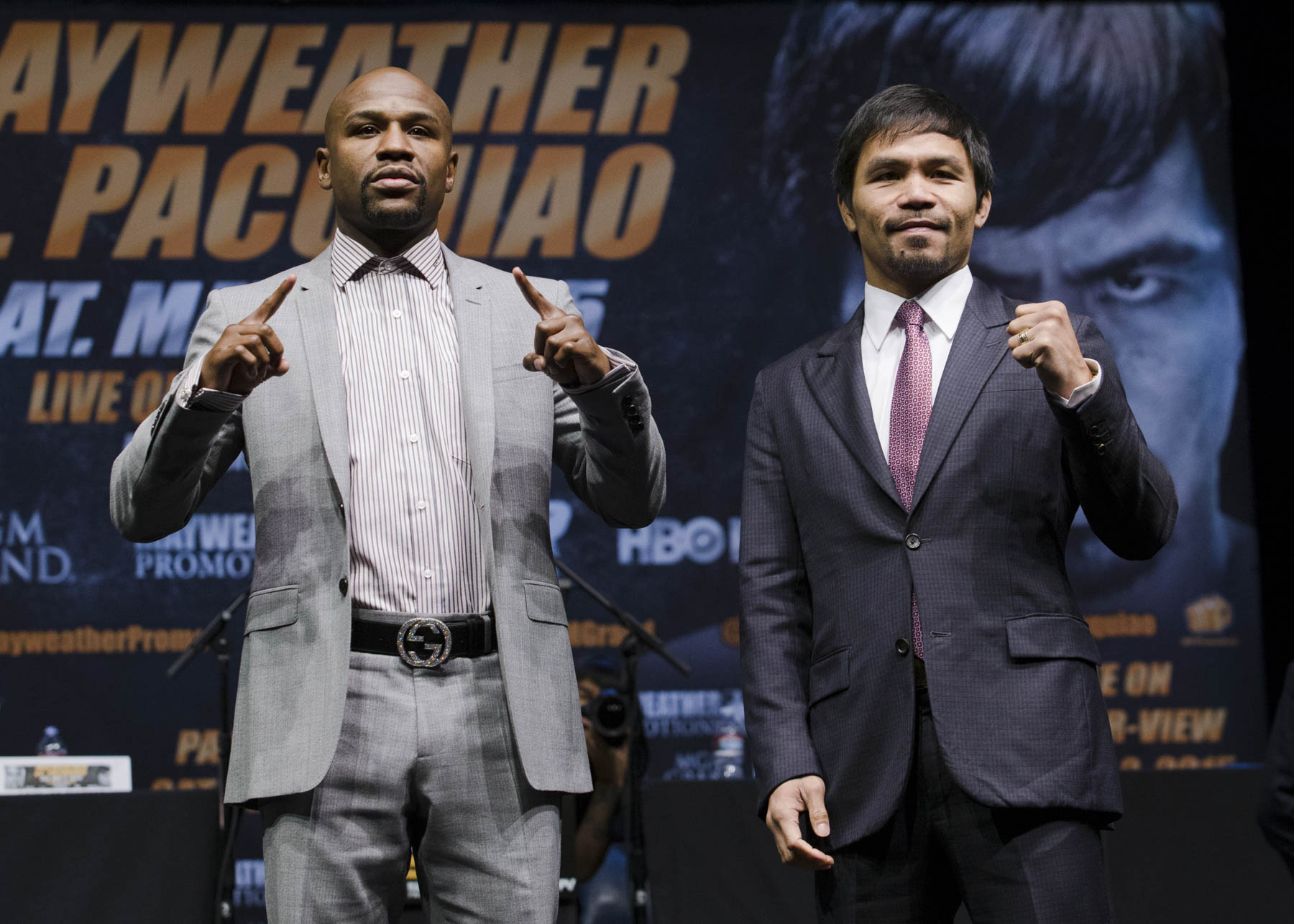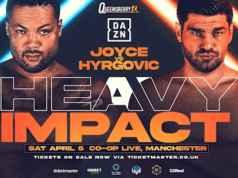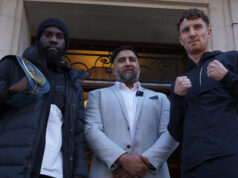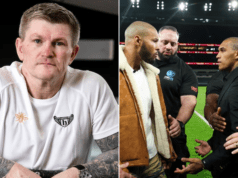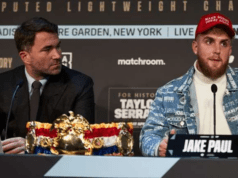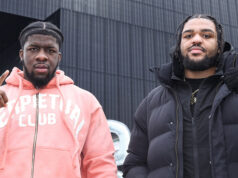It has often been said that “as the heavyweight division goes, so goes boxing,” but that has not always been the case and, in fact, might not even be valid when viewed from a comprehensive perspective dating back to the late 19th century. In Boxing, German author Bertram Job’s epic, 420-page coffee-table dissertation on all aspects of the sweet science, he writes that, “Elegance is the trademark of the slim and nimble stars in the under 147-pound weight class that has attracted insiders and admirers of beauty like no other.”
And so it is with what will be another benchmark entry in the rich history of the division when, on May 2 at MGM Grand in Las Vegas, live on pay-per-view, welterweight champion Floyd “Money” Mayweather (47-0, 26 KOs) takes on fellow titlist Manny “Pacman” Pacquiao (57-5-2, 38 KOs) in a long-anticipated unification showdown that will be the richest prizefight in the sport’s history, and which has drawn comparisons to some of the premier matchups in a weight class imprinted with that elegant trademark to which Job referred.
Although Pacquiao, the only fighter ever to win world championships in eight weight classes, and Mayweather, who has reigned in five weight classes, have not campaigned solely or even mostly as welterweights, it is hardly a surprise that the most important intersection of their remarkable careers comes in the same division for which so many of boxing’s greatest legends are primarily known.
The “gold standard” to which all welterweights aspire remains the late, great Sugar Ray Robinson. Born Walker Smith Jr., the skinny kid who had never fought in a sanctioned bout at any level was a tag-along with coach George Gainford to an amateur tournament in Kingston, N.Y. Asked if he had a flyweight he wished to enter, Gainford was about to say no when Smith tugged on his sleeve and said, “I’ll fight.” As it turned out, Gainford had an AAU card – you needed one to be certified as a non-professional – in the name of Ray Robinson, one of his boxers who had given up the sport. Smith/Robinson won a four-round decision, and, although no one knew it then, thus was a legend born.
Robinson was 85-0 as an amateur before turning pro at 19 in 1940. By 1951, he was 128-1-2 with 84 knockout victories. Although he is also remembered for winning the middleweight title five times, Robinson never lost as a welterweight, winning so often and so emphatically that the legendary trainer, Eddie Futch, was moved to observe that, “He had everything. Boxing skills, punching power, a great chin, mental strength. There was nothing he couldn’t do.”
Robinson also had an outsized ego, which perhaps is a necessary component to any great fighter’s mental makeup. Even a trace of doubt in one’s own ability is not conducive to success in the ring. Once, when asked about his “golf game,” Muhammad Ali, who didn’t play golf, responded, “I’m the best, greatest of ’em all. I just haven’t played yet.”
Mayweather certainly brings that aura of invincibility to his work, and maybe not just because he has yet to lose as a professional. In 2013, he said, “Of course I feel unbeatable. I’m the best. I’m not going into any fight figuring that I’m beatable. I want to make a legacy for myself as the greatest fighter who ever entered the ring.”
Pacquiao, while perhaps not as verbose, is no less secure in his own belief system. It is those heaping measures of talent and swagger that make Mayweather vs. Pacquiao a must-see event. Which of these outstanding fighters can make the other bend to his will? Who will have his name written in larger print in the big book of welterweights?
The International Boxing Hall of Fame has inducted 23 fighters who were, at one time or another, welterweight champions. In addition to Robinson, those whose plaques grace the hallowed hall include Sugar Ray Leonard, Roberto Duran, Thomas Hearns, Oscar De La Hoya, Felix Trinidad, Julio Cesar Chavez, Pernell Whitaker, Carmen Basilio, Henry Armstrong, Emile Griffith, Pipino Cuevas, Jose Napoles, Curtis Cokes, Barney Ross, Kid Gavilan, Wilfred Benitez, Luis Rodriguez, Mickey Walker, Fritzie Zivic, Jack Britton, Jackie Fields, Ted “Kid” Lewis and “Mysterious” Billy Smith. Mayweather and Pacquiao are of course assured of joining their ranks as soon as they become eligible to go onto the ballot.
The lead-up to Mayweather vs. Pacquiao has generated no shortage of comparisons to past welterweight clashes that are notable for the classic nature of those bouts, the widespread public interest attendant to them, or both.
Is Mayweather vs. Pacquiao more likely to be a repeat of, say, Leonard-Duran I, which Duran won on a rousing unanimous decision on June 25, 1980, in Montreal? The epic Leonard-Hearns I, on Sept. 16, 1981, which saw Leonard, trailing on the scorecards, rally for a dramatic, 14th-round TKO at Caesars Palace? Trinidad’s controversial majority decision over De La Hoya in their Sept. 18, 1999, unification showdown at the Mandalay Bay? Or will it make its own mark in such a distinctive way that no comparisons can or should be drawn?
When it comes to unforgettable welterweight bouts, by now it should be obvious that anything and everything is possible. Mayweather and Pacquiao will make history, and add to it, by attempting to bend destiny each to their own purpose.


